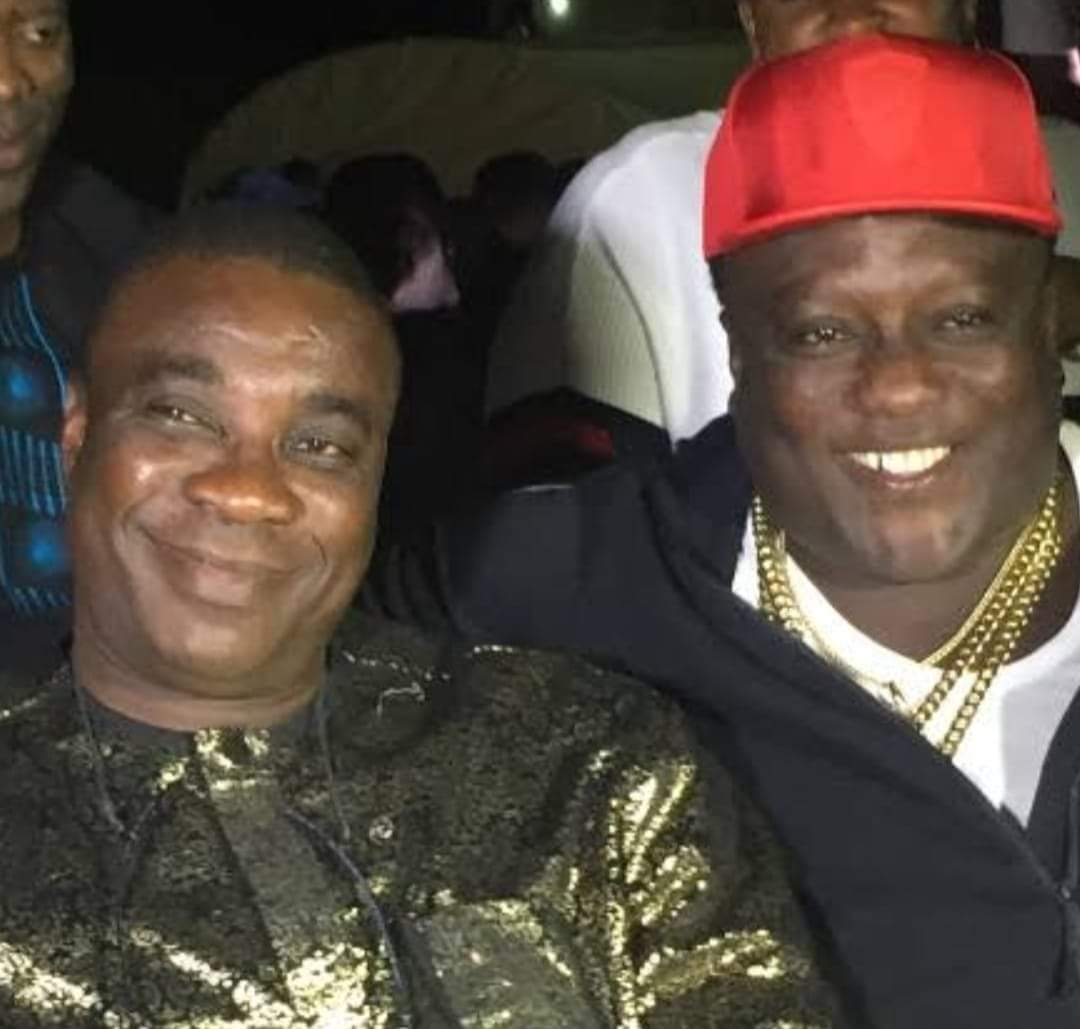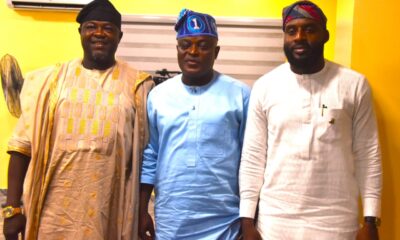News
Still On Osupa: Separating Fact from Fiction

Ordinarily, I do not think it’s proper for me to descend from a mountain to a hill to address the gibberish the otinkpu of Osupa just penned. But then, I thought about it: if I do not properly separate white from black, some people may take your uninformed input as fact.
First, I do not think you read to understand. If you did, you would know that my write-up is not about K1 competing with anyone; for heaven’s sake, with tani? It’s about Osupa’s needless commencement of another controversial combat, which necessitated my, according to you, “watery but factual” write-up.
Your vitriolic response to my view is not only disappointing but also indicative of a misguided understanding of the subject matter. The personal attacks reveal more about the desperation on your side than any factual inaccuracies in my original piece.
While your intent seems to undermine my credibility and expertise as an entertainment journalist of over two and a half decades, I need to set the record straight with the facts:
Since you’ve mentioned K1, let’s put it in the right perspective. K1 has never said anywhere or at any time that he created Fuji music or that he owns it. “Fuji mi,” in case you don’t know, means “my brand of Fuji.” Why should that be a reason for bad blood since everyone in Fuji land has their unique brand and style that is peculiar to each of them?
How then is K1 trying to rewrite history with that statement? K1’s contributions have brought Fuji music to international recognition and height, something even you should acknowledge if objectivity mattered in your narrative. K1 has kept the spirit of Fuji alive and thriving, integrating new influences without losing its core essence. This evolution is not a betrayal of Fuji’s roots but a testament to its enduring relevance.
Your misconceptions about the success I wrote about only make me realize that you really don’t understand the drift of the message. If you truly understood, you wouldn’t jump on the train without knowing the destination. Your insinuation that I wanted to deride Osupa as a poor person only shows your lack of understanding. If not, you would know that I did not base that financial success on his state of wealth. The reason I mentioned this is that most who profess love for Osupa during crisis, do not translate that love into streaming, downloads, and album sales. I know for a fact how much many artists, including K1, are cashing out on many music platforms, which I encouraged fans to do instead of waiting for his next victim to determine how good he is.
However, his low commercial success in terms of album sales does not diminish his artistic merit, this I know.
You claim I am downplaying the educational value in music. This is just another sad part that leaves me no choice but to spell out letters like ABC for you to grasp, like a kindergartner. As a creative writer, do you think I don’t value educational works, lyrics, or poetry? All I said was that the primary role of music is entertainment; if, by chance, it teaches morals, then it’s an added advantage. This does not change the fact that it could be better if it made sense to the listeners.
Let’s look at the general belief about the origin of Fuji music. It is well documented that it has its origin from the production of speech sounds or Quranic lines from the recitation of Arabic words during the Ramadan period. The jargon used then, I’m more than sure, many do not understand except when Yoruba is used. What education can music you don’t understand teach you? Even in the present time, how many people understand Quranic verses that are synonymous with Fuji music when recited in songs?
I listen to all genres of music from every land, which has broadened my perspective in knowing that music has no language. If KSA, Fela Anikulapo, K1, Obey Commander, and many others could captivate Germans or any other in white lands, who do not understand a word of their songs, what message and education did their songs teach them? Osupa has also performed outside the shores of Nigeria, and I’m sure his songs were not in English. How then did those he sang for learn from his music? That is what I meant, not your warped conclusion.
You make me laugh in Spanish when you boastfully wrote that late Sikiru Ayinde Barrister rightly crowned Osupa king of music. Although that can never be my problem, the fact that the likes of Chief Commander Ebenezer Obey, whom SAB revered so much as a worthy mentor, was still alive and many others too, when the crown was given as king of music, only tells me it is nothing but just hype that we call mere puff in legal terms.
Contrary to your baseless accusations, K1’s philanthropic endeavors and community support are well-documented. It’s unfortunate that your narrow perspective blinds you to these realities by claiming it’s only Osupa who is generous. The underlying envy and jealousy driving Osupa’s recent outbursts are clear. Instead of celebrating each other’s successes, some feel the need to tear others down. K1’s rise and consistent contributions to the Fuji music genre are a testament to his talent and dedication—something that should inspire, not incite envy.
Resorting to personal attacks only weakens your position. I challenge you to engage with the factual history and contributions of Fuji music’s stalwarts rather than undermining them with unfounded claims.
Let’s remember, the essence of Fuji music is about unity, cultural pride, and artistic excellence. Instead of sowing discord, let’s celebrate the multifaceted legacy of Sikiru Ayinde Barrister and the artists who have continued to elevate Fuji music.
I would like to end with this quote: “While envy sees through a microscope, love looks through a telescope. Embrace love and channel your effort into cooking a delicious musical meal devoid of controversies.”
This is still Kunle Rasheed reporting live from my inner mind

























